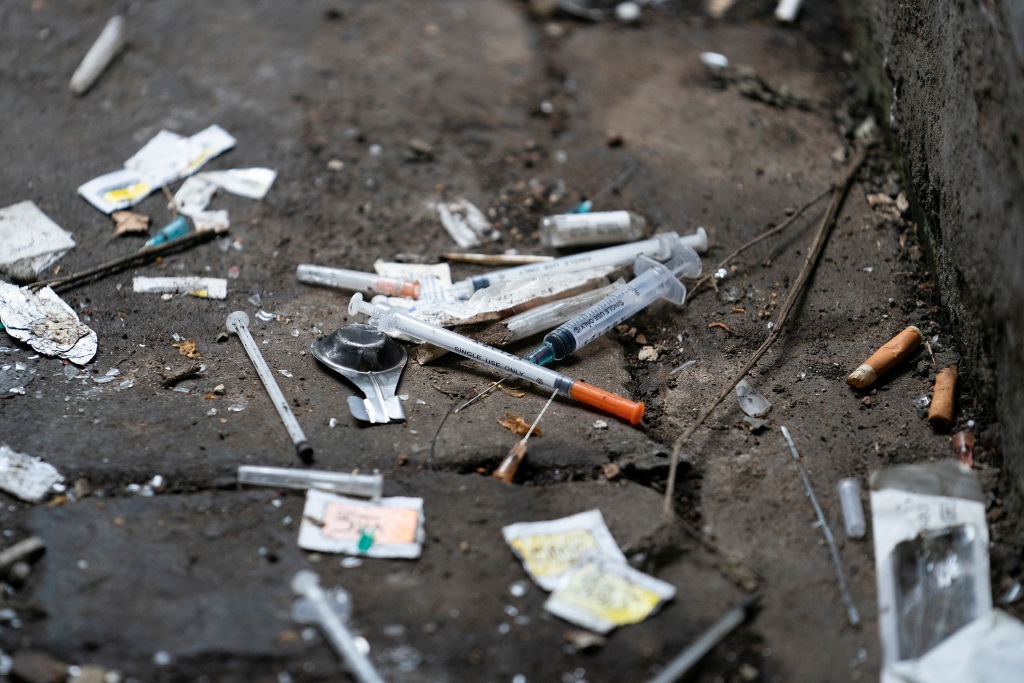Should Relapse Be Treated Like A Crime?
Spotlights like this one provide original commentary and analysis on pressing criminal justice issues of the day. You can read them each day in our newsletter, The Daily Appeal. “As soon as Julie Eldred was granted probation for stealing jewelry to buy drugs, she got busy fulfilling the judge’s conditions,” Jan Hoffman reported for the New York Times […]

|
Spotlights like this one provide original commentary and analysis on pressing criminal justice issues of the day. You can read them each day in our newsletter, The Daily Appeal. “As soon as Julie Eldred was granted probation for stealing jewelry to buy drugs, she got busy fulfilling the judge’s conditions,” Jan Hoffman reported for the New York Times last year. Eldred “began an intensive all-day outpatient treatment program. She even went an extra step and started daily doses of Suboxone, a medication that can quell opiate cravings.” But soon she relapsed and snorted fentanyl. “To stop from plunging into free fall, she asked her doctor for a stronger dose of Suboxone. She stayed clean the next day. And the next.” But the next day, 11 days after her probation began, she had her first drug screen and tested positive because traces of fentanyl were still in her system. “Within hours, she was shackled, strip-searched and incarcerated.” The judge sent Eldred to a medium-security prison until her lawyer could find residential treatment. During her 10 days in prison, Eldred did not receive any drug counseling, much less Suboxone. Should a relapse be punished with a criminal sanction? Eldred believes that it is cruel and unusual to order people on probation with substance use disorder to abstain completely from drug use. “Remaining drug-free is an almost universal requirement of probation,” writes Hoffman. “Violating it can bring sanctions ranging from a warning to, frequently, jail.” Eldred took this argument to the Massachusetts Supreme Judicial Court last year. At a time when experts and lay people are embracing an understanding of substance use disorder as a disease, the case seemed poised to bring that understanding to the way courts actually treat people. Eldred lost. Massachusetts’ highest court refused to adopt the mainstream medical understanding of substance use as a disease and relapse as a symptom of that disease. In its decision, the court said that judges “stand on the front lines of the opioid epidemic” and are “faced with difficult decisions that are especially unpalatable.” This week, Eldred testified before state lawmakers on a bill that would do what the court did not: prevent judges from throwing people in jail who are in treatment and fail a mandatory drug test while on probation. The bill would give a choice to people with substance use disorder who test positive. If judges order them not to use drugs or alcohol during their probation and they relapse, they could ask to be placed in treatment instead of being incarcerated. A positive drug or alcohol test by itself would not be considered a violation of their probation. The bill would also limit how often the court system can have a person drug tested to four times a month. As of now, there are no limits, and people on probation have complained that random drug screenings force them to leave their jobs in the middle of the day, endangering their livelihoods. No one testified against the bill, and there was plenty of testimony in its favor. Going to prison “just ripped me right out of all my treatments, everything,” Eldred said. “The beginning of recovery is such a sensitive part for people, emotions and everything. And to be ripped out and thrown into prison, where I’m strip-searched and thrown into a cell and I’m now actually around more drugs than I was when I was outside—I don’t know.” “The overwhelming evidence is that treatment is more effective than imprisonment,” said state Representative Ruth Balser, who sponsored the House version of the bill. “Putting people into the criminal justice system can be traumatizing at a time when we want people to get more support in their recovery.” It’s important, she said, “for people to appreciate that relapse is part of the illness. It’s not a moral failing, it’s part of the illness.” Dr. Peter Friedmann, president of the Massachusetts Society of Addiction Medicine, called relapse an “expected” part of recovery. “The traditional practice of imprisoning persons with substance use disorder for recurrent use … ignores the natural history of substance use disorder, which is characterized by ongoing, compulsive substance use despite negative consequences; physical dependence; and difficulty abstaining, despite a person’s resolution to do so.” Eldred’s lawyer, Lisa Newman-Polk, argued that Eldred’s substance use disorder made it “virtually impossible” to stay sober through sheer will. Newman-Polk said that when some of her clients relapse, instead of seeking help, they avoid their treatment programs and probation officers out of fear of being sent to prison. The bill, she said, would incentivize people “to stay engaged in treatment.” But even if the bill passes, people could still be imprisoned if they are arrested again, even if those charges are simply illegal drug possession. This makes little sense, the arbitrary line between ingesting drugs and doing so in view of a police officer. But this is a line we as a society have drawn over and over. Arrests are stigmatizing and have consequences. An arrest almost always puts a person in violation of probation, which usually results in incarceration, long before prosecutors have to prove that the person is actually guilty of the crime, or even, in many cases, show any evidence of guilt. It will be a long road before physical disorders such as substance use are disentangled from the moral stigma of the criminal legal system, but the Massachusetts law would be a good place to start. |
